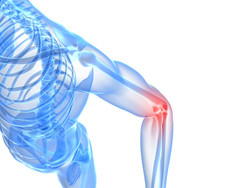Sugars and inflammation
Study of the role of carbohydrates, glucomics, is highlighting their importance in health and disease. The extraordinary complexity of carbohydrates, ranging from simple single molecules to huge polymers, has so far hampered the progress of analytical methodologies. To advance the field of glucomics, the EU-funded INFLAMA (Matrix macromolecules in inflammation) project assembled a network of research labs – 'gluco-net' – for carbohydrate research. Their focus was on the role of extracellular matrix polysaccharides such as hyaluronan and proteoglycans in treating inflammation. Key scientific activities of the project included the delineation of the mechanisms of hyaluronan synthesis in cell cultures of human smooth muscle cells and endothelial cells following inflammatory stimulation. The scientists also evaluated the expression of all the genes involved in the hyaluronan biosynthesis pathways. INFLAMA research results shed light on the molecular mechanisms involved in the anti-inflammatory, antithrombotic and antimetastatic effect of unique heparin analogues isolated and characterised by the researchers. In vitro models have elucidated hyaluronan synthesis. Signalling mediated by proteoglycans demonstrated the importance of macromolecules on cell membranes during inflammation-triggered stimuli. Studies used the tropical sea squirt Styela plicata, which in the presence and absence of TNFalpha resulted in complex changes in inflammatory cytokine and adhesion molecule expression. The induced inflammatory response was considerably reduced by S. plicata heparin treatment. Data also demonstrated that oxidation of low-density lipoprotein is critical for matrix alterations and hyaluronan production. Increase in arterial wall thickness is due to the cell migration and proliferation coupled with hyaluronan production. Moreover, epigenetic control in diabetes affects this metabolism, giving rise to arteriosclerosis. A critical sulphation pattern was identified in heparin sulphate chains of membrane proteoglycans. The cancer model demonstrated the critical function of this proteoglycan in cancer development and invasiveness. INFLAMA results have featured in no less than 54 peer-reviewed papers, conference presentations and international meetings. The work has elucidated the molecular and biochemical bases of inflammation. As such, new therapies to tackle this process behind diseases such as cancers, diabetes and colitis are on the horizon.







